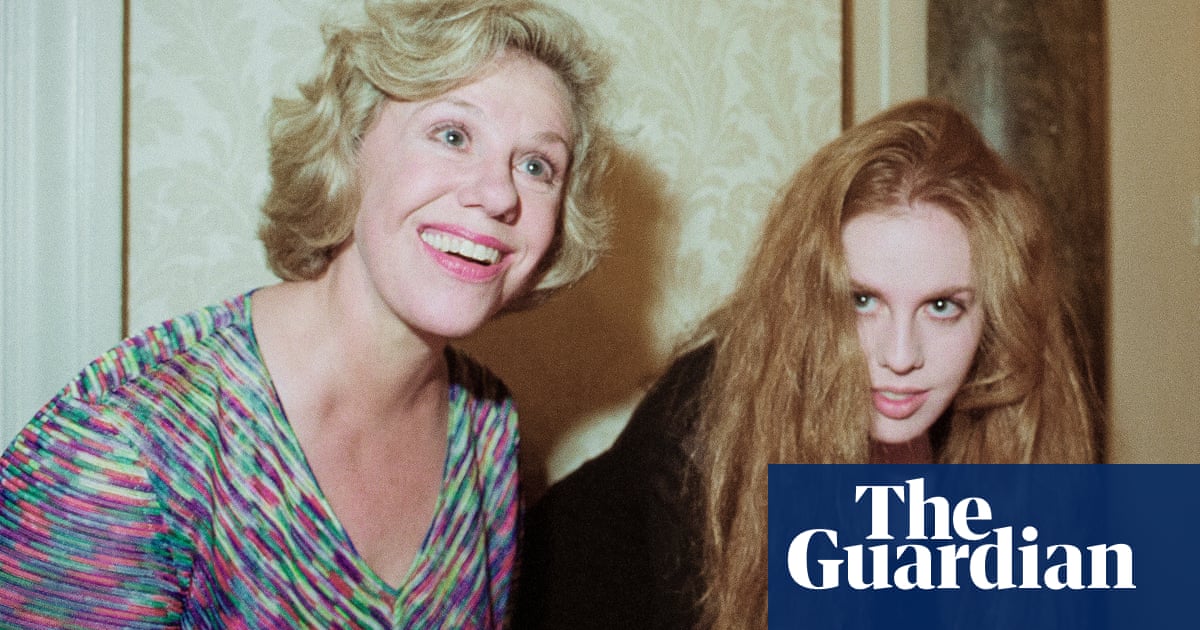In 2023, Molly Jong-Fast had the year from hell. Her husband, Matt, discovered he had pancreatic cancer; her father-in-law, aunt and stepfather all died; and her then 81-year-old mother, the novelist and poet Erica Jong, was diagnosed with dementia. “My mother is just a body now,” she states in How to Lose Your Mother. “Erica Jong the person has left the planet.”
That year also marked the 50th anniversary ofFear of Flying, Jong’s autobiographical novel. Hailed as a landmark of feminist literature, it made a star of its author, selling more than 20m copies and leading to appearances on The Tonight Show and the cover of Newsweek. The book coined the phrase “the zipless fuck” to describe casual sex. “Now think about being the offspring of the person who wrote that sentence. And pour one out for me,” writes Jong-Fast.
How to Lose Your Mother documents this annus horribilis when, along with working and parenting three children, the author found herself juggling meetings with doctors, carers, accountants and funeral directors. It also provides snapshots of a life spent in the shadow of her mother’s celebrity. Jong-Fast, who is an only child, learned early that the problem with success is that it tends to wane, leading to grief, bitterness and, in Erica’s case, alcoholism. “Becoming normal like the rest of us, the journey to unfamousness, was for [Erica] an event so strange and stressful, so damaging to her ego, that she was never able to process it.”
Her mother’s dementia crept up slowly. In the past, people would come up to Jong-Fast to tell her what Erica’s writing meant to them; now they reported her saying or doing something inappropriate, such as writing the word “Neat” under a social media post announcing someone’s death. Visiting her at home, Jong-Fast often found her once glamorous mother shuffling around with her robe open, a breast exposed. Yet the elderly, absent-minded Jong wasn’t so different from her younger self, when she was dreamy and distracted. She never came to school performances or sat down and played with her daughter. For long stretches of her childhood, her mother was absent and parenting was handed over to a nanny.
While Jong-Fast is aware of her privilege – she blithely refers to her “nepo baby” status – she nonetheless paints a bleak picture of familial dysfunction and neglect. After a childhood spent longing for Erica’s attention, she finds her mother is now dependent on her and pleading for her company. Mirroring the way Erica relied on others to look after her daughter all those years ago, Jong-Fast finds herself doing the same, hiring others to deal with the day-to-day business of caring.
The writing veers between punchy and meandering, with moments of deep sadness leavened by a sardonic humour. There is a sense, at times, that we are eavesdropping on an extended therapy session. Guilt is a running theme. Her honesty not just about her mother’s shortcomings but her own, specifically her reluctance to spend time with Erica, is affecting. So too is her agony over her decision to move her mother and stepfather out of their apartment and into a care facility, selling their home and belongings without their knowledge.
But there is another less convincing seam of agony here, related to her spilling the beans. “[I’ve] always hated the idea of writing a book like this,” she notes more than once, to which the obvious response is: “Then why do it?” Certainly, Jong-Fast’s assertion that she is a bad daughter for writing about Erica’s decline strikes a disingenuous note. You don’t tell the world you have found shit in your mother’s bed if you are fundamentally uncomfortable with revealing the details of her infirmity.
Jong-Fast is most convincing when describing the blunt reality of her situation. She learns that, though we are shaped by our parents, seeking redress or closure following an unhappy childhood is a fool’s errand. She also discovers that simultaneously wrangling elderly dependents and children along with a critically ill spouse while in the throes of middle age can drive a person to the brink, and that it is normal to wish to run away. Yet she makes it out the other side of her terrible year, not through bravery or superhuman stoicism, but because there is no other road available. As she tells her husband in the aftermath of his cancer treatment: “The only way through is through.”
Sign up toBookmarks
Discover new books and learn more about your favourite authors with our expert reviews, interviews and news stories. Literary delights delivered direct to you
after newsletter promotion
How to Lose Your Mother: A Daughter’s Memoir by Molly Jong-Fast is published by Picador (£16.99). To support the Guardian buy a copy atguardianbookshop.com. Delivery charges may apply.
